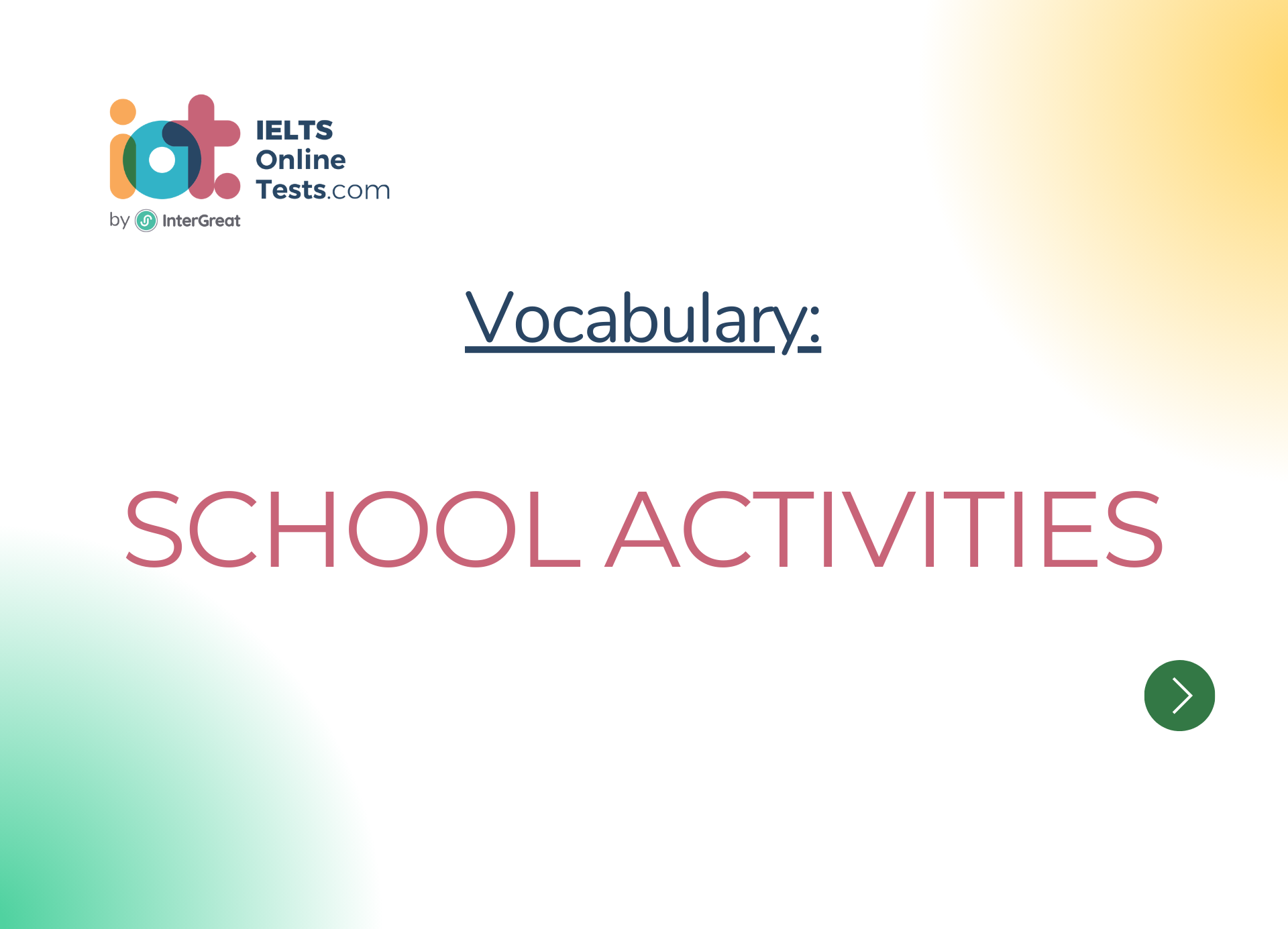
School activities
Here's a lesson on vocabulary related to "School Activities" for the IELTS band score 3.0-4.5:
I. Extracurricular Activities:
Sports teams: Organized groups for various sports, such as basketball, soccer, or volleyball.
Clubs and societies: Student organizations focused on specific interests or hobbies, like drama club, chess club, or debate society.
Music groups: Bands, choirs, or orchestras where students can showcase their musical talents.
Dance team: A group that practices and performs various styles of dance.
Art club: A club for students interested in creating and appreciating visual arts.
II. Events and Celebrations:
School assemblies: Gatherings where students and teachers come together for announcements, presentations, or performances.
Field trips: Excursions to educational places, such as museums, historical sites, or science centers.
Cultural festivals: Celebrations of different cultures within the school community, showcasing traditions, food, and performances.
Graduation ceremony: A formal event marking the completion of a level of education, such as high school graduation.
Sports day: A day dedicated to athletic competitions and recreational activities for students.
III. Competitions and Contests:
Science fair: An event where students present their science projects and experiments to judges.
Spelling bee: A competition in which participants spell words orally to test their spelling abilities.
Math Olympiad: A competition that challenges students' mathematical skills and problem-solving abilities.
Debate competition: A structured contest where students present arguments and engage in oral debates on specific topics.
Art competition: A contest that evaluates and recognizes students' artistic talents and skills.
IV. Community Service:
Volunteer work: Activities done by students to help and support the local community or charitable organizations.
Fundraising events: Initiatives to raise money for a cause or organization, such as bake sales or charity runs.
Environmental projects: Efforts to promote sustainability and environmental conservation within the school community.
Peer mentoring: Assisting younger or less experienced students with academic or personal guidance.
Social outreach programs: Collaborative projects that address social issues or promote community engagement.
V. School Productions:
Drama performances: Stage plays or theatrical productions performed by students.
Musical performances: Concerts or musical shows featuring student singers, musicians, or bands.
Talent shows: Events where students showcase their unique talents, such as singing, dancing, or comedy.
Art exhibitions: Displays of students' artwork, including paintings, sculptures, and photography.
Science exhibitions: Presentations of scientific projects and experiments conducted by students.
VI. School Routine and Timetable:
Morning assembly: A daily gathering of students and teachers for announcements and important information.
Class schedule: A timetable that indicates the times and subjects of each class throughout the day.
Break time: A designated period for students to take a short rest or have a snack between classes.
Lunchtime: The period when students have their midday meal.
Dismissal: The end of the school day when students are allowed to leave and go home.
VII. School Support Services:
Guidance counselor: A professional who provides academic and personal support to students.
Learning support: Assistance provided to students who require additional help in their studies.
Student clubs: Organized groups based on shared interests or activities, such as sports, arts, or hobbies.
Student council: A representative body of students that advocates for student needs and interests.
School nurse: A healthcare professional who attends to students' medical needs and provides basic healthcare services.
Remember to practice using these vocabulary words in sentences and conversations to improve your understanding and fluency in English.




